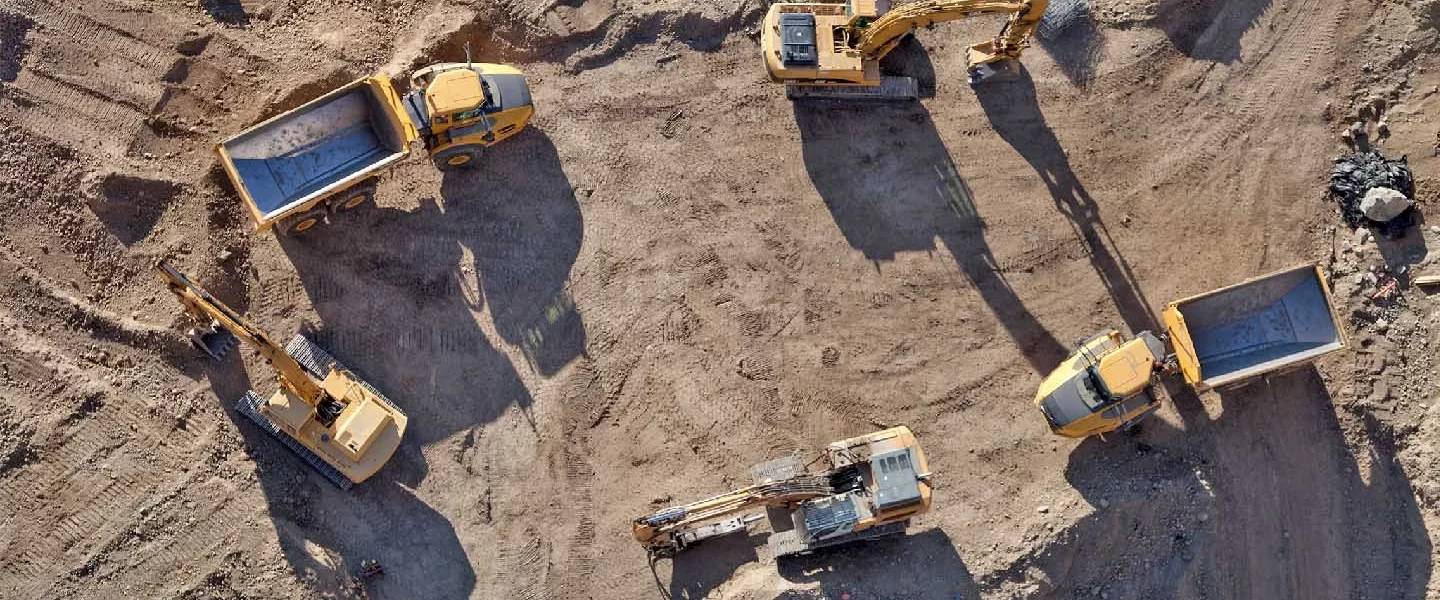Construction fleet management plays a vital role in the success of rental and construction companies by ensuring the efficient and effective utilization of their vehicles and equipment. With the complexity and demands of construction projects, managing a fleet can be a challenging task. Many problems can occur, from going over budget to costly breakdowns and accidents.
Yet, putting in place a strong fleet management system has a host of advantages that can help.
The effective management of construction fleets has become increasingly important in recent years due to the rise in competition and the need for cost-effective solutions. In this article, we will explore the benefits of GPS tracking for your construction fleet and how similar software can help companies greatly improve their site efficiency.
The Main Aspects of Fleet Management
Several key aspects of construction fleet management are vital for successful operations. These include fleet tracking and monitoring, fuel management, and compliance with regulatory requirements. Effective fleet management can sometimes extend to driver and operator management, especially when working on multiple sites across city borders or beyond.
While the others are usually straightforward to understand, operator management can be a bit trickier and more complex. Driver and operator management often means proper training, monitoring driving behavior, and ensuring compliance with specific safety regulations of each town or city. This ensures that the equipment used doesn’t cause accidental injuries or costly damage on certain construction sites or depots.
How GPS Tracking Works in the Construction Industry
GPS tracking on a construction site refers to the use of GPS technology to track the location and movement of construction off-road vehicles and equipment. This technology allows construction companies to monitor their assets’ real-time location, ensuring efficient and effective use.
This helps construction managers keep tabs on their assets and make informed routing, scheduling, and maintenance decisions. GPS tracking can also enhance safety on construction sites by alerting managers to unsafe vehicle or equipment usage or unauthorized entry into restricted areas.
The Benefits of Efficient Fleet Management
Construction sites can encounter various problems and challenges that can impact project timelines, budgets, or overall productivity. It’s essential for construction companies to proactively manage and mitigate these issues through effective planning, communication, risk management, and resource allocation. This is where an effective fleet management strategy or system can be of tremendous help.
All these benefits intertwine. Better productivity leads to shorter project times but increased budgets. Those same budgets can also ensure that the fleet’s workers and operators have access to well-maintained and safe equipment, further boosting productivity. All of this can be achieved through a simple upgrade to the technology used on-site!
Cost Saving and Staying Under A Budget
One of the primary benefits of construction fleet management is its potential to save money wherever possible. Effective fleet management can assist companies in reducing fuel consumption, optimizing routes, and improving vehicle maintenance. This brings other benefits, but the money saved can also be allocated for future equipment maintenance or upgrades.
Additionally, GPS tracking and telematics technology can monitor and analyze vehicle performance in real-time, enabling companies to identify areas for improvement. This data can be used to create more efficient routes, reduce idle time, and schedule preventative maintenance, thereby avoiding costly repairs. With more streamlined routes, companies have more opportunities to control costs and invest in other projects.
Overall Safety on Construction Sites
Another critical benefit of construction fleet management is improved safety. Construction sites are inherently hazardous, and ensuring the safety of workers and equipment is of utmost importance. GPS tracking and telematics technology can monitor driver behavior, such as speeding or harsh braking, and provide real-time alerts and notifications to enhance driver safety.
Additionally, automated vehicle maintenance and inspection schedules can ensure that equipment is in good working order, reducing the risk of accidents or breakdowns on the job site.
Improved Productivity and Client Satisfaction
In addition to safety, construction fleet management can reduce idle time and provide additional oversight, meaning companies can complete more jobs in less time while increasing their capacity and revenue.
As such, real-time data and analytics can alsohelp companies identify areas of inefficiency and implement strategies to streamline operations, reducing downtime and increasing overall productivity.
Providing Data for Environmental Safety and Company Decisions
Keeping a construction site eco-friendly involves taking steps to minimize the project’s environmental impact. This can mean things like reducing waste, recycling materials, using sustainable building materials, and employing energy-efficient equipment. Construction companies can also implement practices like stormwater management and erosion control to protect local ecosystems.
One of the more business-oriented perks that construction fleet management brings to the table is providing real-time data and insights for strategic decision-making. These analytics help companies identify trends, predict future needs, and make informed decisions about equipment procurement, maintenance, and replacement. It’s a way for companies to optimize their operations and stay ahead of the competition.
Moreover, construction fleet management can assist companies in meeting regulatory requirements and environmental standards. GPS tracking and telematics technology can provide accurate data on fuel consumption, vehicle emissions, and driver behavior, helping companies comply with regulations and reduce their carbon footprint.
By combining GPS, telematics, and sustainable construction techniques, construction sites can reduce their carbon footprint and contribute to preserving the environment for future generations, all while making a profit.
Takeaway
Effective construction fleet management can offer numerous benefits to companies in the construction industry. By reducing costs, improving safety, increasing productivity, enhancing customer satisfaction, meeting regulatory requirements, and providing valuable data for decision-making, construction fleet management can revolutionize how companies handle their fleets for the better.
Investing in GPS tracking and telematics technology and implementing best practices in fleet management can help companies remain competitive, increase profitability, and achieve long-term success.
